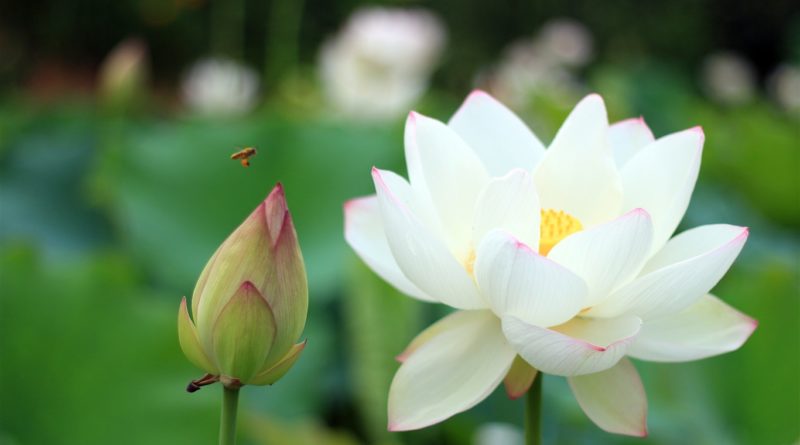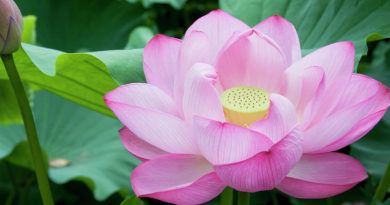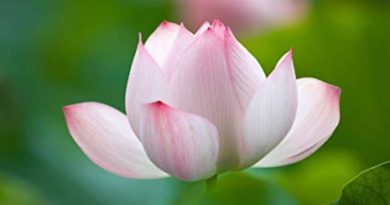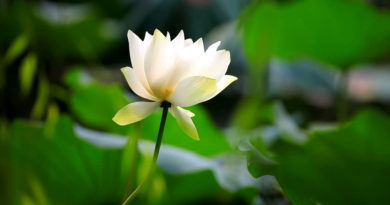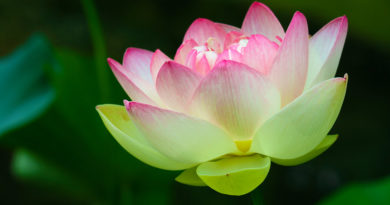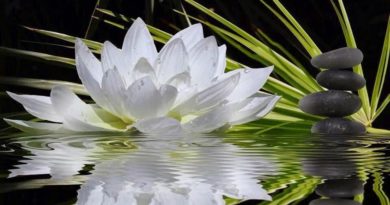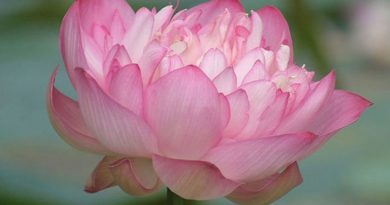Uddesavibhangasuttaṃ – Point-by-point Classification
MAJJHIMA NIKĀYA III
4. 8. Uddesavibhangasuttaṃ
(138) Point-by-Point Classification
I heard thus. At one time the Blessed One was living in the monastery offered by Anāthapiṅḍika in Jeta’s grove in Sāvatthi. The Blessed One addressed the bhikkhus from there. ‘Bhikkhus I will give the point by point classification, listen attentively,’ Those bhikkhus agreed and the Blessed One said thus. ‘Bhikkhus, in whatever manner the bhikkhu examines, he finds his external consciousness is not scattered, internally is not settled and without a holding is not worried. Bhikkhus, when the bhikkhu’s external consciousness is not scattered, internally is not settled and without a holding is not worried, there would not be to him future arisings of birth, decay, death and unpleasantness,’ The Blessed One said thus, got up from his seat and went to his dwelling.
Soon after the Blessed One had left, it occurred to those bhikkhus. The Blessed One has given this short exposition and without giving the detailed explanation has got up from his seat and gone to his dwelling ‘Bhikkhus, in whatever manner the bhikkhu examines, he finds his external consciousness is not scattered, internally is not settled and without a holding is not worried. Bhikkhus, when the bhikkhu’s external consciousness is not scattered, internally is not settled and without a holding is not worried, there would not be to him future arisings of birth, decay, death and unpleasantness,’ Who could give us the detailed explanation to this short exposition given by the Blessed One?
It occurred to those bhikkhus, venerable Mahākaccāna is praised by the Teacher as well as by the wise co-associates in the holy life. It is possible for venerable Mahākaccāna to give the detailed exposition for this short exposition given by the Blessed One. What if we approached venerable Mahākaccāna and asked this. Then those bhikkhus approached venerable Mahākaccāna, exchanged friendly greetings, sat on a side and said. ‘Friend, Kaccāna, the Blessed One gave this short exposition and without giving the detailed exposition got up from the seat and went to his dwelling. -’Bhikkhus, in whatever manner the bhikkhu examines, he finds his external consciousness is not scattered, internally is not settled and without a holding is not worried. Bhikkhus, when the bhikkhu’s external consciousness is not scattered, internally is not settled and without a holding is not worried, there would not be to him future arisings of birth, decay, death and unpleasantness,’ Now who could give us the detailed exposition of this short exposition?”
It occurred to us venerable Mahākaccāna is praised by the Teacher as well as the wise co-associates of the holy life. It is possible for venerable Mahākaccāna to give the detailed exposition for this short exposition given by the Blessed One. What if we approached venerable Mahākaccāna and asked this. So those bhikkhus approached venerable Mahākaccāna and said ‘Friend Kaccāna, explain this to us.”
“Friends, it is like a man in need of heartwood, going in search of it, come to a standing huge tree full of heartwood, ignoring the heartwood, roots and trunk was to think that the branches and leaves was the heartwood. In the same manner, the venerable ones come face to face with the Teacher have ignored him and should ask it from me. That Blessed One knows, sees, has become wise, has become the Teaching and has become Brahmā. He preaches and practises, is the bringer of meanings, the giver of deathlessness, the lord of the Teachingand thus gone. Now is the right time to ask this from him and as he explains it, we will bear it in our minds’.
“Friend Kaccāna, indeed, that Blessed One knows, sees, has become wise, has become the Teaching and has become Brahmā. He preaches and practises it, is the bringer of meanings, the giver of deathlessness, the lord of the Teachingand thus gone. Now is the right time to ask this from him and as he explains it, we will bear it in our minds Yet, venerable Mahākaccāna is praised by the Teacher as well as the wise co-associates of the holy life. It is possible for venerable Mahākaccāna to give the detailed exposition for this short exposition given by the Blessed One. Friend Kaccāna, explain this to us, if it is not troublesome to you’.
“Then friends, listen and attend carefully,’ Those bhkkhus agreed and venerable Mahākaccāna said thus ‘The Blessed One has given this short exposition and without giving the detailed explanation has got up from his seat and gone to his dwelling ‘Bhikkhus, in whatever manner the bhikkhu examines, he finds his external consciousness is not scattered, internally is not settled and without a holding he is not worried. Bhikkhus, when the bhikkhu’s external consciousness is not scattered, internally is not settled and without a holding is not worried, there would not be to him future arisings of birth, decay, death and unpleasantness’ Of this short exposition, I understand the detailed explanation thus.
Friends, how is external consciousness scattered and spread out? Friends, the bhikkhu seeing a form has eye consciousness which follows that form enslaved, boundfettered and in search of pleasure. To this is called external consciousness is scattered and spread out. Hearing a sound, … re … Smelling a scent, … re … Tasting … re … Experiencing a touch, … re … Cognizing an idea has mind consciousness which follows that idea enslaved, bound and fettered in search of pleasure. To this is called external consciousness is scattered and spread out. : .
Friends, how is external consciousness not scattered and not spread out? Friends, the bhikkhu seeing a form has eye consciousness which does not follow that form enslaved, bound and fettered in search of pleasure. To this is called external consciousness is not scattered and not spread out. Hearing a sound, … re … Smelling a scent, … re … Tasting … re … Experiencing a touch, … re … Cognizing an idea has mind consciousness which does not follow that idea enslaved, bound and fettered in search of pleasure. To this is called external consciousness is not scattered and not spread out. : .
Friends, how is the mind internally settled? Friends, the bhikkhu secluded from sensual desires and demerit, with thoughts and thought processes and with joy and pleasantness born of seclusion attains to the first jhāna. To him there is consciousness which is enslaved, bound, fettered and in search of pleasure following after joy and pleasantness born of seclusion. To this is called the mind is internally settled. Again the bhikkhu overcoming thoughts and thought processes, internally the mind settled and in one point, with joy and pleasantness born of concentration attains to the second jhānaTo him there is consciousness which is enslaved, bound, fettered and in search of pleasure following after joy and pleasantness born of concentration. To this is called the mind is internally settled. Again the bhikkhu with equanimity to joy and detachment abides mindful and aware and with the body experiencing pleasantness too, attains to the third jhāna. To this the noble ones say abiding in pleasantness with equanimity. To him there is consciousness which is enslaved, bound, fettered and in search of pleasure following after equanimity. To this is called the mind is internally settled. Again, friends the bhikkhu dispelling pleasantness and unpleasāntness and earlier having overcome pleasure and displeasure, with equanimty mindfulness purified attains to the fourth jhāna. To him there is consciousness which is enslaved, bound, fettered and in search of pleasure following after neither unpleasantness nor pleasantness. To this is called the mind is internally settled.
Friends, how is the mind internally not settled?Friends, the bhikkhu secluded from sensual desires and demerit, with thoughts and thought processes and with joy and pleasantness born of seclusion attains to the first jhāna. His consciousness is not enslaved, bound, fettered and is not in search of pleasure following after joy and pleasantness born of seclusion. To this is called the mind is internally not settled. Again the bhikkhu overcoming thoughts and thought processes, internally the mind settled and in one point, with joy and pleasantness born of concentration attains to the second jhānaHis consciousness is not enslaved, bound, fettered and is not in search of pleasure following after joy and pleasantness born of concentration. To this is called the mind is not internally settled. Again the bhikkhu with equanimity to joy and detachment abides mindful and aware and with the body experiencing pleasantness too, attains to the third jhāna. To this the noble ones say abiding in pleasantness with equanimity. His consciousness is not enslaved, bound, fettered and is not in search of pleasure following after equanimity. To this is called the mind is internally not settled. Again, friends the bhikkhu dispelling pleasantness and unpleasāntness and earlier having overcome pleasure and displeasure, with equanimty mindfulness purified attains to the fourth jhāna. His consciousness is not enslaved, bound, fettered and is not in search of pleasure following after neither unpleasantness nor pleasantness. To this is called the mind is not internally settled. Friends, to this is said the mind is internally not settled.
Friends, how is there worry for non holding? Friends, the not learned ordinary man who has not seen noble ones or Great Beings, not clever in their Teachings and not trained in their Teachings sees matter in self, or a material self, or in self matter, or in matter selfThat matter changes, takes some other form. Consciousness arises to him about the changed nature of matter and he worries about the changed nature of matter. The worry takes hold of the mind in which the Teaching had arisen, terrifying and annoying it and he worries without a hold. Sees feelings in self, or a feeling self, or in self feelings, or in feelings self, … re … Sees perceptions in self, or a perceiving self, or in self perceptions, or in perceptions self, … re … Sees determinations in self, or a determining self, or in self determinations, or in determinations selfSees consciousness in self, or a conscious self, or in self consciousness, or in consciousess self This consciousness changes, take some other form. Consciousness arises to him about the changed nature of consciousess and he worries about the changed nature of consciousness The worry takes hold of the mind in which the Teaching had arisen, terrifying and annoying it and he worries without a hold. Friends, this is worrying for non holding.
Friends, how is there no worry for non holding? Friends, the learned noble disciple who has seen noble ones and Great Beings, is clever in their Teachings and trained in their Teachings does not see matter in self, or a material self, or in self matter, or in matter selfThat matter changes, takes some other form. Consciousness arises to him about the changed nature of matter and he does not worry about the changed nature of matter. The worry does not take hold of the mind in which the Teaching had arisen, terrifying and annoying it and he does not worry without a hold. Does not see feelings in self, or a feeling self, or in self feelings, or in feelings self, … re … Does not see perceptions in self, or a perceiving self, or in self perceptions, or in perceptions self, … re … Does not see determinations in self, or a determining self, or in self determinations, or in determinations self, … re … Does not see consciousness in self, or a conscious self, or in self consciousness, or in consciousess self This consciousness changes, take some other form. Consciousness arises to him about the changed nature of consciousess and he does not worry about the changed nature of consciousness The worry does not take hold of the mind in which the Teaching had arisen, terrifying and annoying it and he does not worry without a hold. Friends, this is not worrying for non holding.
Friends, of this short exposition gven by the Blessed One thus:.
“Bhikkhus, in whatever manner the bhikkhu examines … re … there would not be to him future arisings of birth, decay, death and unpleasantness”
I know the detailed explanation thus. If you wish approach the Blessed One and ask him about it. As he explains it, we will bear it in our minds.
Those bhikkhus delighted with the words of venerable Mahākaccāna and appreciating them got up from their seats, approached the Blessed One worshipped, sat on a side and said. ‘Venerable sir, that exposition, which the Blessed One stated in short and without giving the detailed explanaton got up from the seat and went to the dwelling, such as’Bhikkhus, in whatever manner the bhikkhu examines … re … there would not be to him future arisings of birth, decay, death and unpleasantness”
Soon after the Blessed One had gone to his dwelling it occurred to us who could give us the detailed exposition of this short exposition?”
It occurred to us venerable Mahākaccāna is praised by the Teacher as well as the wise co-associates of the holy life. It is possible for venerable Mahākaccāna to give the detailed exposition for this short exposition given by the Blessed One. We approached venerable Mahākaccāna and asked him to explain this to us. He explained it in this manner with these words and phrases
“Bhikkhus, Mahākaccāna is wise, if you had asked it from me, I would have explained it in this same manner. This is its meaning, bear it as that.”
The Blessed One said thus and those bhikkhus delighted in the words of the Blessed One.

